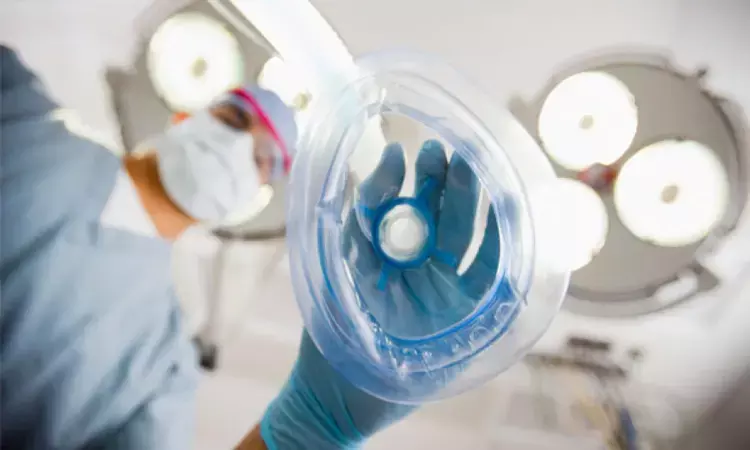- Home
- Medical news & Guidelines
- Anesthesiology
- Cardiology and CTVS
- Critical Care
- Dentistry
- Dermatology
- Diabetes and Endocrinology
- ENT
- Gastroenterology
- Medicine
- Nephrology
- Neurology
- Obstretics-Gynaecology
- Oncology
- Ophthalmology
- Orthopaedics
- Pediatrics-Neonatology
- Psychiatry
- Pulmonology
- Radiology
- Surgery
- Urology
- Laboratory Medicine
- Diet
- Nursing
- Paramedical
- Physiotherapy
- Health news
- Fact Check
- Bone Health Fact Check
- Brain Health Fact Check
- Cancer Related Fact Check
- Child Care Fact Check
- Dental and oral health fact check
- Diabetes and metabolic health fact check
- Diet and Nutrition Fact Check
- Eye and ENT Care Fact Check
- Fitness fact check
- Gut health fact check
- Heart health fact check
- Kidney health fact check
- Medical education fact check
- Men's health fact check
- Respiratory fact check
- Skin and hair care fact check
- Vaccine and Immunization fact check
- Women's health fact check
- AYUSH
- State News
- Andaman and Nicobar Islands
- Andhra Pradesh
- Arunachal Pradesh
- Assam
- Bihar
- Chandigarh
- Chattisgarh
- Dadra and Nagar Haveli
- Daman and Diu
- Delhi
- Goa
- Gujarat
- Haryana
- Himachal Pradesh
- Jammu & Kashmir
- Jharkhand
- Karnataka
- Kerala
- Ladakh
- Lakshadweep
- Madhya Pradesh
- Maharashtra
- Manipur
- Meghalaya
- Mizoram
- Nagaland
- Odisha
- Puducherry
- Punjab
- Rajasthan
- Sikkim
- Tamil Nadu
- Telangana
- Tripura
- Uttar Pradesh
- Uttrakhand
- West Bengal
- Medical Education
- Industry
No separate preoperative Fasting Guidelines required for Diabetics to prevent perioperative pulmonary aspiration: Study

Researchers have found that people with diabetes do not have higher gastric volumes than those without diabetes after following standard preoperative fasting instructions. The study was published in the journal Anaesthesiology by Perlas and colleagues. The findings offer reassurance that standard fasting instructions are effective for both diabetic and nondiabetic patients.
Preoperative fasting guidelines are in place to minimize the risk of perioperative pulmonary aspiration. The prospective study examined the gastric contents of individuals with and without diabetes following standard fasting guidelines: stopping solids 8 hours before surgery and clear liquids 2 hours prior. Participants underwent gastric ultrasound assessments of their gastric volumes. The study examined 84 individuals with diabetes (85% with type 2) and 96 without diabetes, all undergoing elective surgery and found no significant differences in gastric volume or in the proportion with a "full stomach" based on the American Society of Anesthesiologists (ASA) guidelines.
The key findings of the study were as follows:
• The mean gastric volume was 0.81 mL/kg in individuals with diabetes and 0.87 mL/kg in those without diabetes.
• A "full stomach" designation, as per ASA guidelines, was seen in 15.5% of individuals with diabetes and 11.5% without diabetes, indicating a similar risk for both groups.
• No significant difference in gastric volume between individuals with diabetes and those without after following preoperative fasting guidelines.
• The proportion of individuals with a "full stomach" according to ASA guidelines was 15.5% for individuals with diabetes and 11.5% for those without.
• The study reinforces the effectiveness of standard fasting guidelines in minimizing perioperative risks in diabetic and nondiabetic patients alike.
The study suggests that preoperative fasting instructions are effective in achieving empty stomachs for patients with diabetes and those without. However, there were some study limitations, including the exclusion of participants with a BMI > 40, limiting the generalizability of the findings.
The study did not include participants taking glucagon-like peptide-1 (GLP-1) receptor agonists, which have become a common treatment for type 2 diabetes and obesity. These medications delay gastric emptying and could pose a risk of perioperative aspiration. The new ASA guidelines recommend withholding daily-dosed GLP-1 agonists on the day of surgery and weekly formulations a week prior.
The study suggests that standard preoperative fasting guidelines are effective for people with diabetes, as they do not experience higher gastric volumes compared to nondiabetic individuals. This supports the practice of using the same fasting protocols for patients with diabetes, provided they do not exhibit symptoms of gastroparesis. The findings pave the way for further research into the impacts of medications like GLP-1 receptor agonists on perioperative risks and their interaction with fasting guidelines.
Reference:
Dr Riya Dave has completed dentistry from Gujarat University in 2022. She is a dentist and accomplished medical and scientific writer known for her commitment to bridging the gap between clinical expertise and accessible healthcare information. She has been actively involved in writing blogs related to health and wellness.
Dr Kamal Kant Kohli-MBBS, DTCD- a chest specialist with more than 30 years of practice and a flair for writing clinical articles, Dr Kamal Kant Kohli joined Medical Dialogues as a Chief Editor of Medical News. Besides writing articles, as an editor, he proofreads and verifies all the medical content published on Medical Dialogues including those coming from journals, studies,medical conferences,guidelines etc. Email: drkohli@medicaldialogues.in. Contact no. 011-43720751


